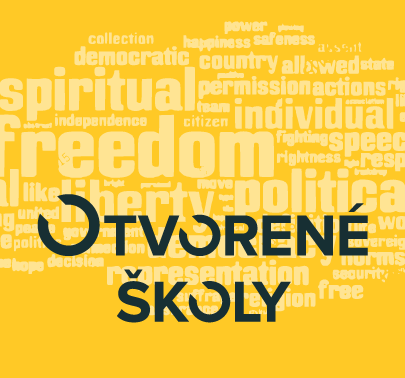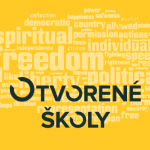evidence
What do we do?
The Open Schools programme aims to promote a democratic environment in schools and citizenship education through peer education and the work of pupil school boards.
The programme is based on the assumption that youth learn best from each other and in a safe environment where they experience how democracy works.
Staff and volunteers of the Open Schools Programme work with teachers and headteachers to adopt a child-centred environment enabling children to create real and positive change.
Children contribute to individual action plans, for example to create a child-friendly school atmosphere. Children are supported to identify problems and create solutions.
Schools are supported to make school councils come to life, to engage children meaningfully in decisions about day-to-day school life and for children’s voices to be heard.
Here you can find more information about the Open Schools Programme:
For more information contact: Zuzana Čačová
-
impact
What impact did you want to achieve?
The Open Schools programme, prepares and support the school community to gradually change the atmosphere at the school through education that:- Engages and entertains children - they are emotionally involved in the individual activities of the program – individual workshops are interactive and aim to draw children and young people into them so that they themselves are active co-creators of the program, that their voice is heard and that they also learn to use it productively in their own lives
- Links them to real life - they learn how to use the tools of representative democracy in practice: how the pupil school board should work and how to make it really work i.e. how to write a petition.
- Uses their own language - programme volunteers are peers – they engage in the same topics, experience similar problems and so they are able to get as close as possible to the group of children whose participation in the life of the school we are trying to increase.
What changes did you achieve?
Over the last 5 years participation is being understood and teachers have learned to give freedom and responsibility to children. Teachers become more skilled in using the language needed to engage in more controversial topics. Children become skilled in formulating their ideas in a positive way. Children learn to listen and communicate with each other to identify and solve issues. -
advice
Advice on children’s participation and increasing impact
- Create a space for children to come up with ideas
- Create something together so that children take ownership knowing that ‘it’s my school!’
- Engage children through interaction and informal activities – taking a formal approach can be frustrating for children
- Show teachers examples of how children can engage in issues that are meaningful to them- teachers also learn how to engage children
- Find a teacher who is interested and who is in alliance with a child-centred approach
- Work with teachers and provide support in the preparation, implementation and evaluation of the programme
- Encourage teacher to be teacher of the individual child, rather than teacher of the subject




